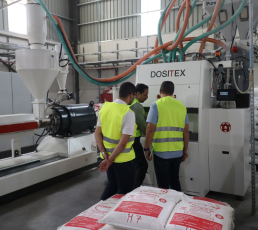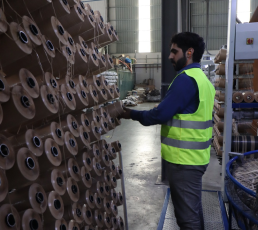Exploring Sustainability Themes in Chicken Road Game Worlds
Sustainability has become a pivotal theme across various industries, including gaming. One unlikely yet innovative representation of sustainability can be found in the world of games involving chickens crossing roads. Through gameplay, players encounter various sustainability challenges, learning how to tackle environmental issues creatively. This article delves into how these game worlds portray sustainability and why they are an effective medium for raising awareness about environmental issues.
The Unconventional Setting of Chicken Road Games
Chicken road games, at their core, present players with a fun and often humorous challenge: helping a chicken cross various roads safely. However, what may seem like a simple task evolves into a multifaceted journey that mirrors real-world sustainability issues. As players navigate through bustling highways and tricky terrains, they inadvertently engage with scenarios that reflect ecological consequences and solutions. This setting provides an engaging platform to subtly introduce players to complex sustainability themes such as resource management, ecosystem balance, and human impact on the environment.
The Role of Game Mechanics in Teaching Sustainability
Game mechanics in chicken road games are cleverly designed to teach sustainability lessons without the players even realizing it. These mechanics require players to strategize and make choices that directly impact their success, reflecting sustainability decisions in real life. For example, players might need to choose between different paths, each with varying levels of difficulty and consequences. This mirrors the choices people make regarding consumption and resource management. By learning from mistakes and improving strategies, players become more aware of the importance of sustainable decision-making chickenhillroad.com.
Sustainability Issues Reflected in Gameplay
Chicken road games often incorporate various sustainability elements that players must contend with. These games might simulate environmental issues through the following scenarios:
- Pollution Hazards: Players must navigate through areas contaminated with virtual refuse, emphasizing the importance of reducing waste in urban settings.
- Resource Scarcity: Time or energy constraints mimic scenarios of limited resources, encouraging resource conservation tactics.
- Climate Change Effects: Altering weather patterns and road conditions highlight the impact of climate change on safe passage.
- Biodiversity Challenges: The appearance of diverse roadblocks simulates ecosystem disturbances, underscoring the need for preserving natural habitats.
These elements serve as educational tools, fostering a deeper understanding of global sustainability challenges.
Engagement and Awareness Through Interactivity
The interactivity of chicken road games not only captivates players but also serves as a powerful tool for raising awareness about sustainability. By actively participating in the game world, players develop empathy and a better understanding of environmental issues. The interactive nature of these games promotes critical thinking, as players must continuously adapt to changing game environments and difficulties. This dynamic engagement empowers players to apply these learned sustainability principles to real-world scenarios, effectively bridging the gap between gaming and environmental consciousness.
Conclusion: The Future of Sustainability in Gaming
The exploration of sustainability themes in chicken road game worlds is a testament to the potential of video games as tools for environmental education. By integrating sustainability into gameplay, developers can create not only entertaining but also enlightening experiences for players. As technology advances, it is likely that more games will continue to address pressing global issues, fostering a generation of gamers who are both environmentally aware and proactive. Whether through the lens of chickens dodging traffic or other creative scenarios, the gaming industry holds a unique position to influence positive change on a global scale.
FAQs
- What are chicken road games?
Chicken road games are interactive games where players guide a chicken across roads, often incorporating various obstacles and challenges. - How do chicken road games teach sustainability?
These games incorporate elements that simulate real-world sustainability challenges, such as managing resources or navigating pollution, to teach players about environmental issues. - Why use games to promote sustainability?
Games provide an engaging and interactive platform that can capture the attention of players, making it an effective medium for education and awareness of sustainability themes. - Can gaming really impact sustainability in the real world?
Yes, gaming can raise awareness and encourage behavioral changes among players, potentially impacting their real-world decisions related to sustainability. - Are there other games that focus on sustainability?
Yes, many games focus on sustainability, including titles that tackle environmental management, urban planning, and conservation efforts.















